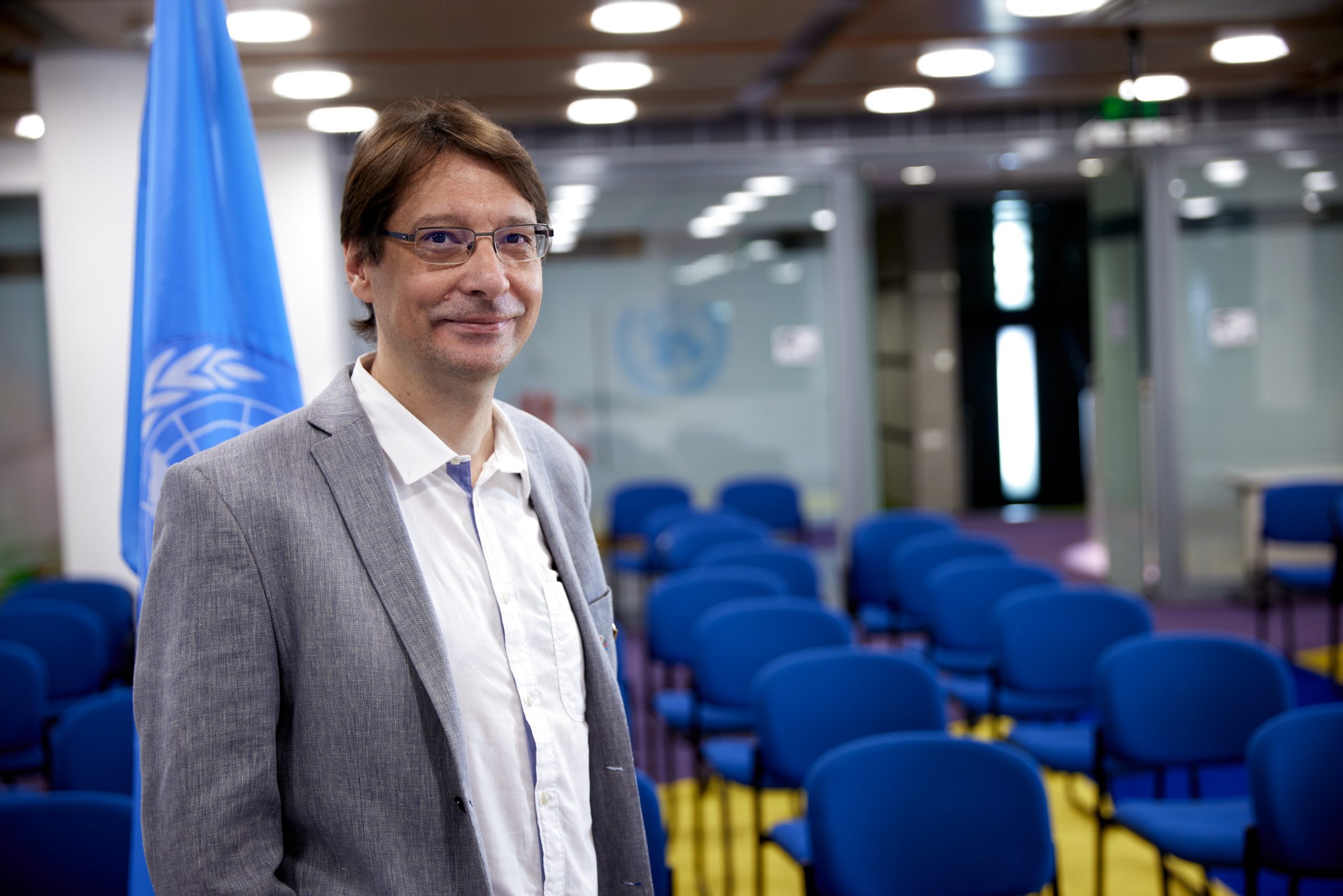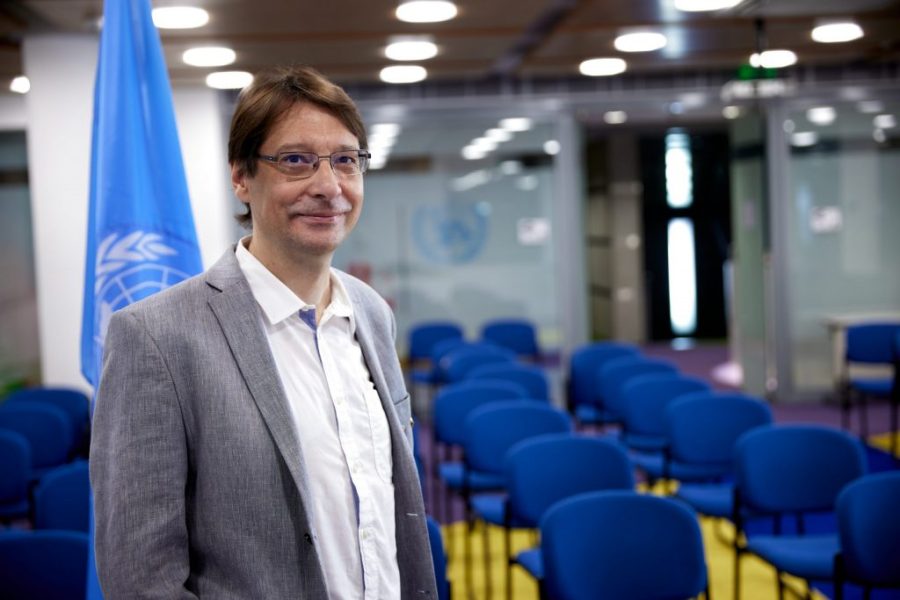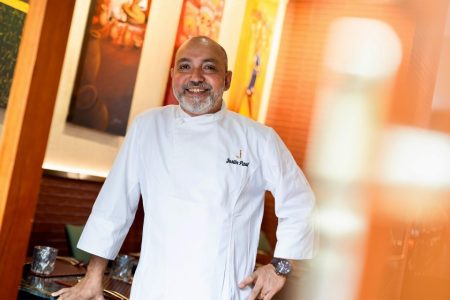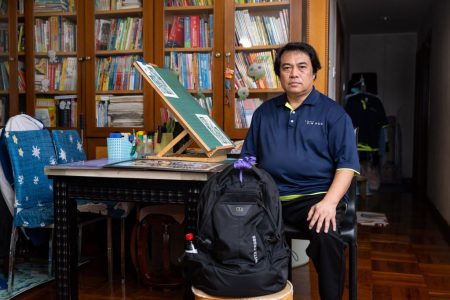Born in the historical Beaujolais province in Lyon, France, in 1967, Serge Stinckwich felt the call of science in his youth. “I was interested in how machines worked at a young age, dismantling alarm clocks and radios from time to time,” recalls the computer scientist, who is now the head of research at the United Nations University Institute (UNU) in Macao.
But it wasn’t until his uncle bought him a Texas Instrument 57 programmable calculator that Stinckwich’s scientific adventure truly began. “When I was a teenager, I spent much of my time during lunchtime [with the calculator] in the computer club of my school,” he says. “I played games and puzzles, and solved basic math programs like computing the value of Pi.”
As time went on, Stinckwich developed a wide range of interests, keen to learn as much as he could about computers, music and board games. When it came time to make plans for university, he considered pursuing a bachelor’s in physics or astronomy. But in the end, he chose computer science – a path that would soon open new doors around the world.
From 1985 to 1987, Stinckwich studied computer science at Claude Bernard University Lyon 1 in France, then enrolled in a master’s programme in the same subject at École Normale Supérieure de Lyon for the next three years. Adding another feather to his academic cap, the ambitious student earned a PhD at Savoy Mont Blanc University, in the heart of the French Alps, in 1994.
After graduating, the scholar took a job as an associate professor at the University of Caen Normandy. He held the position for roughly 25 years, from 1995 to 2020, taking a few sabbaticals to pursue research projects abroad.
At the same time, Stinckwich worked as a senior researcher in the L’Unité de Modélisation Mathématique et Informatique des Systèmes Complexes (UMMISCO) – an international research unit that’s part of the French Research Institute on Sustainable Development (IRD). Among his many responsibilities, the scholar explored social and environmental issues in Hanoi, Vietnam, from 2008 to 2012, and Cameroon from 2017 to 2020.
“I became interested in finding an intersection between computer science and sustainability because I saw the consequences of pollution and unsustainable lifestyles on our environment.”
– Serge Stinckwich
Building a better world through technology
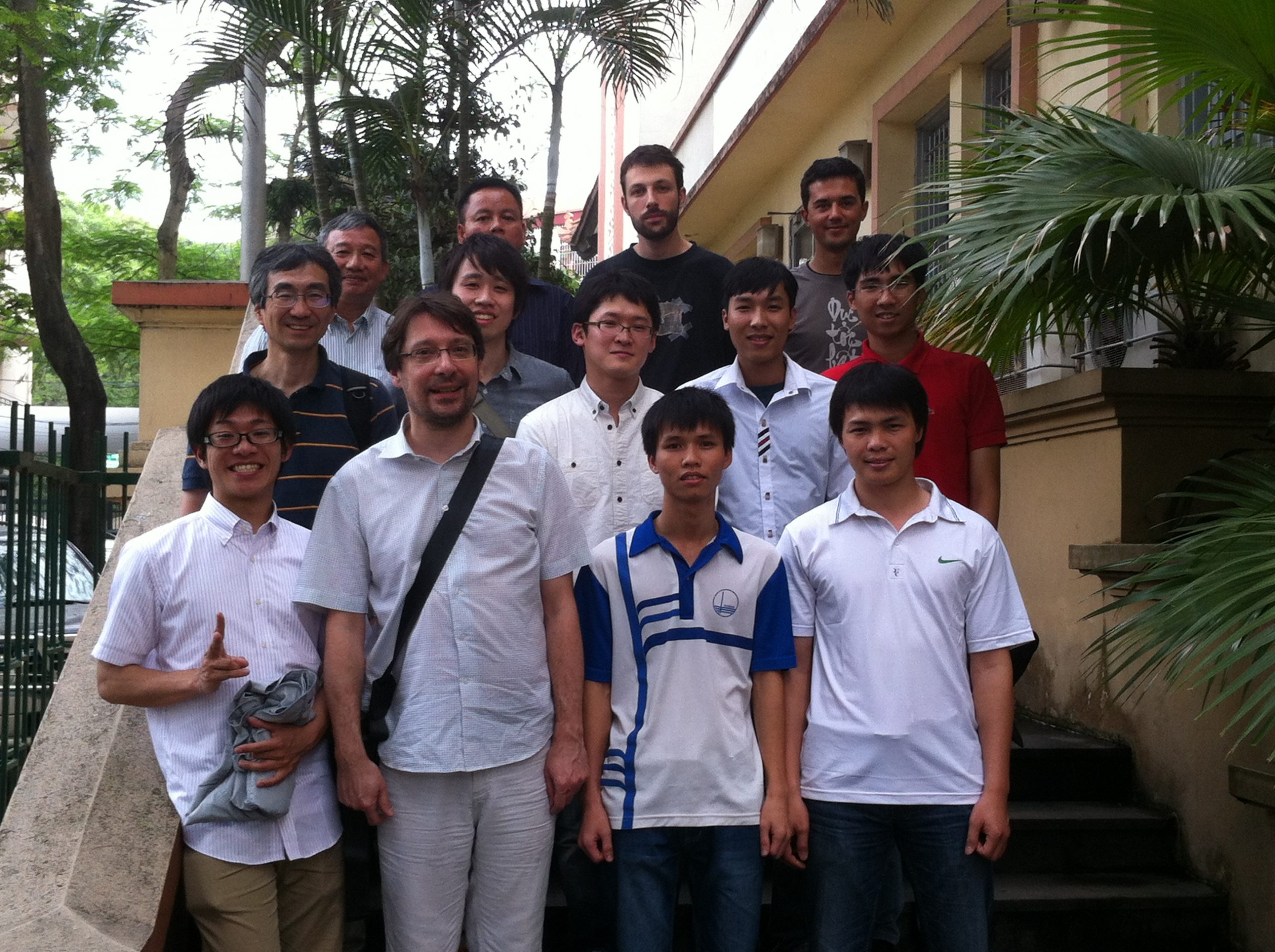
After earning his PhD, Stinckwich gravitated towards artificial intelligence as well as projects that would solve everyday problems. For example, while teaching and researching for IRD in Hanoi, the academic worked extensively on a programme called Autonomous Robots for Observation of Urban Networks. The programme aims to design an automated observation system for search and rescue robotics in developing countries, he says.
Essentially, an autonomous mobile robot can collect information within impacted urban sites and maintain communication links between rescuers on a local level. On a global level, an interactive, computer-based system helps governments and rescuers make decisions in affected spaces.
“We were working on [environmental disaster management] and hazards – trying to address some of the challenges of sustainability,” recalls Stinckwich.
Between his time in Vietnam and Cameroon, Stinckwich worked as a lecturer at Sorbonne University in Paris from 2013 to 2017. As a self-described “city person,” Paris was not a significant change for him, but he appreciated the chance to see more of the world and better understand society.
“From time to time, it is important to reflect on what you are doing,” he says. “It is a good practice when you are a scientist to ask yourself from time to time, ‘Why am I doing this?’ This is just a way to assess your priorities and maybe focus on new things because they will give you more insights in the long term.”
While working in Cameroon from 2017 to 2020, the scholar turned his focus to agronomy (the science of soil management and crop systems) and agroforestry, which seeks to incorporate more trees and shrubs into agricultural areas. He worked on Deep2PDE, a project supported by the French National Research Center for Tropical Agriculture, to model cocoa agroforestry systems using artificial intelligence.

“This ambitious programme explores three research fronts: the mathematics of modelling, artificial intelligence (neural networks and machine learning) and agronomy to optimise agroforestry systems via modelling,” he shares. “This third objective should, for example, enhance understanding of how competition for light between species affects cocoa production.”
The researchers’ goal was to design an agroforestry simulation to test the system and make it more productive. “It is quite difficult to research some places of the world,” he says. “But the interactions with local students always motivate me to stay focused on what is important for them.”
Helping his students has always been a big part of his motivation as an educator and researcher. “The most memorable experiences are always when my students make progress and achieve success, such as getting a paper published or defending their PhD thesis. I know this is extremely hard for them, especially in developing countries where education and university are not the top priorities.”
From research to everyday impact
In the early days of the pandemic, Stinckwich came upon a great opportunity in Macao. So in March 2020, he moved to the SAR to work as the head of research at United Nations University Institute in Macau (UNU Macau). “I change from time to time; I like changes,” he says of the move. “I go for new opportunities.”
“I guess my younger self would be really surprised,” he continues. “I was a bit reserved when I was young. I never imagined that if you want to pursue a scientific career or work with computers, you also need to go out in front of people and understand their needs.”
Thanks to his passion for social issues, the UNU Macau proved an excellent fit for Stinckwich. The organisation performs UN policy-relevant research and addresses critical issues from the UN 2030 Agenda for Sustainable Development through innovative approaches and digital technology.
The agenda outlines 17 sustainable development goals (SDGs), which aim to end poverty, protect the environment and ensure everyone in the world enjoys peace and prosperity by 2030.
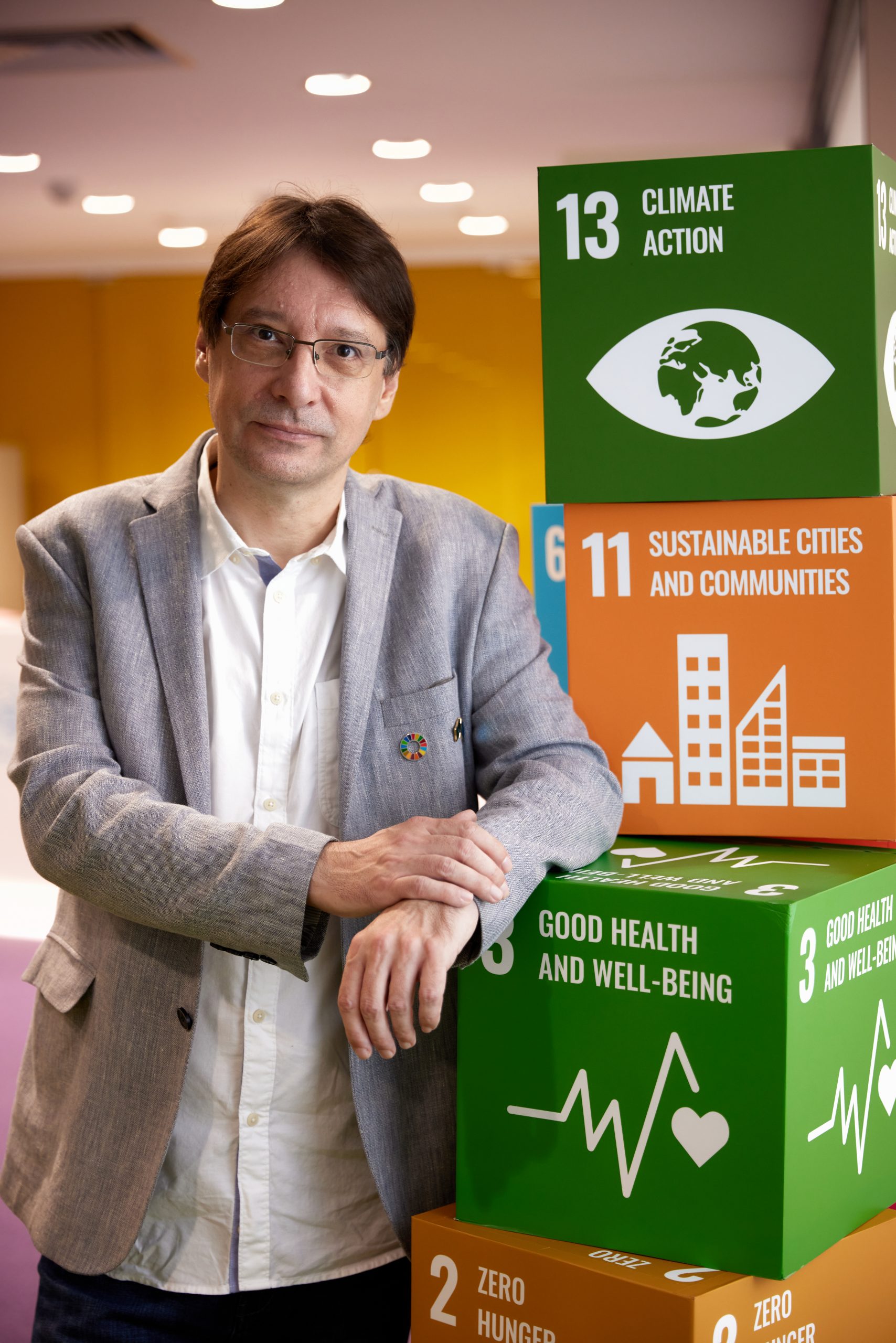
The UN’s grand visions attracted the academic because he always wanted his research to have more of an impact on day-to-day lives. At UNU, Stinckwich and his team work on the ethics of artificial intelligence (AI). “AI has played an important role in achieving meaningful development and innovation across the world, bringing several positive impacts, such as automated disease diagnosis, growing efficiency in the workplace, and assistive technologies for education,” he says.
“At the same time, many researchers point out ethical and legal concerns related to accountability, transparency, and responsibility in designing and using AI for different social sectors.”
In this context, he continues, multilateral organisations such as the United Nations need to “play a key role in building a framework and guideline for the sustainable development of AI” so the technology can be adopted responsibly worldwide.
Recently, the scholar joined a group of international experts to work towards an ambitious goal set by the Independent Panel for Pandemic Preparedness and Response. They hope to protect the world from future pandemics by revolutionising how data is gathered and used globally, following the absence of accurate, real-time data available in the early days of Covid-19.
Changing with the times
Like many people living abroad during the pandemic, Stinckwich has seen his fair share of challenges. In his personal life, his wife has been in France, so they have had to adapt to a long-distance relationship, and professionally, he says, work, by necessity, has become more digitally connected.
“With Covid-19, it has been more difficult to connect with other researchers and there are fewer opportunities to do field research in other countries.”
Before the pandemic, researchers travelled to conduct interviews and research or establish relationships with local academic institutes, universities and partners. But at the moment, most collaborations must be done virtually.
“This has also given us an opportunity to reflect on the impact of the trips we make for our activities as researchers on the planet. As citizens, we will also have to redefine this to participate in the sustainability effort that everyone must lead.”
“We need to address many challenges around the world, such as the pandemic and climate change,” he says. “It is important to understand these challenges and the interlinkages between SDGs in a holistic way.”
Taking digital technology as an example, Stinckwich says technology and innovation will play an important role in our global society: “It will definitively play an even more critical role in the future. We need to understand the positive and negative impacts – not only on the economy and society but also on the environment.”
